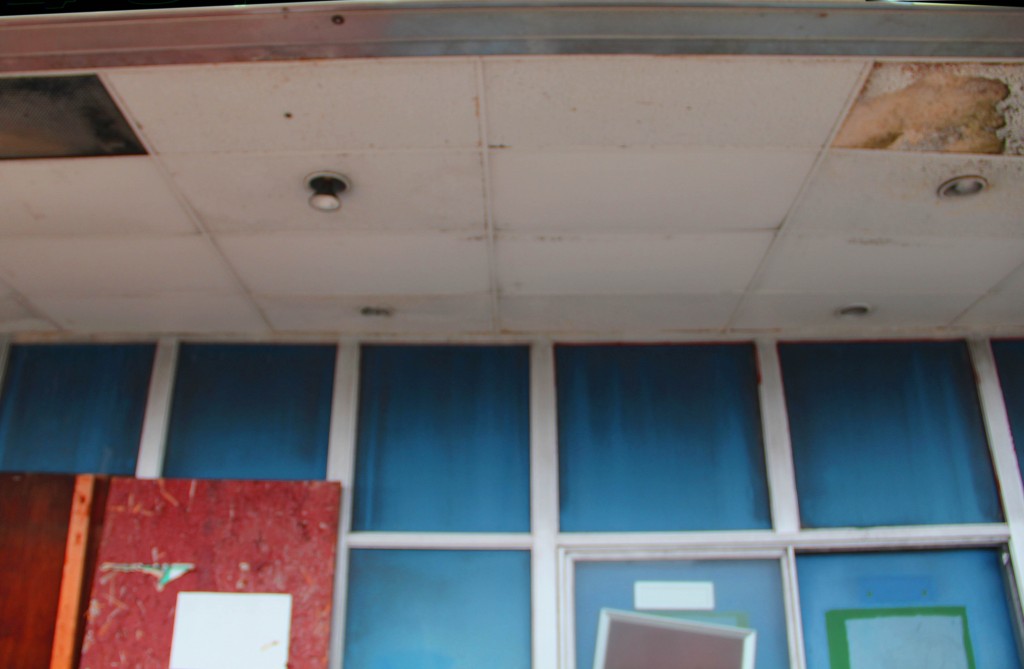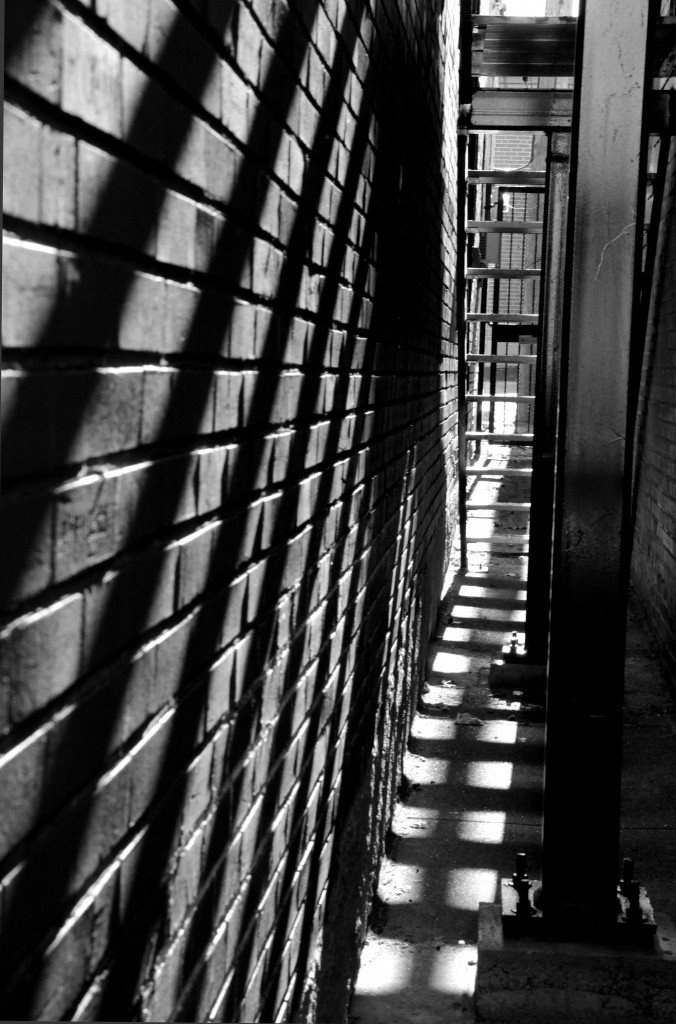The last motion picture theater of my youth is gone.
For several years, The Avalon, sitting on Kingshighway, across the street from a mortuary that has now become a church, has been shuttered and slowly decaying and finally has met its inevitable fate.
 In a way, good. It has been an eyesore for some time, a constant reminder of neglect and a ruin of a bygone era.
In a way, good. It has been an eyesore for some time, a constant reminder of neglect and a ruin of a bygone era.
Hyperbole? Indeed, yes, but true nonetheless. As you can tell by what remained, it was an elegant, simple building, with a lovely facade. A symbol of an age thoroughly gone—the single-screen, stand-alone movie theater.
The last film I saw there was back in 1986 or ’87—The Last Temptation of Christ. The theater had passed into the hands of a single owner who was a bit of an eccentric, and he tried everything to keep it going. He had a bit of a windfall with that film because of the timidity of every other movie theater in the city and county. They all refused to show Scorcese’s flawed depiction of Jesus’ final days. The Avalon announced it would screen it and it was no doubt the last time it had sell-out audiences for several days.
By then, the wear and tear was already very apparent. One of the speakers had been busted for years, generating an annoying buzz off to stage left, and he had never, evidently, made enough money to fix it or replace it. For ordinary dialogue it was fine, the buzz only became noticeable during very loud sequences. Probably a torn cone.
But the air conditioning worked, the concession stand still operated, and the seats were kept in repair.
After that, we never went back. When the doors closed, I expected someone to buy it and try to restore it, but I always thought that during the ’80s and ’90s, when so many of these disappeared one way or the other.
There’s a scene in Woody Allen’s film Radio Days that shows the family Going To The Movies during the 1930s. In Allen’s handling, it is a reverential scene, like people going to church, slow, a processional, and while I never quite felt that way, there is certainly something of that in my memory. Nostalgia often becomes a frame for reverence. Going to the movies for us was a Big Deal and our major entertainment, up till the age of VCRs. I have vivid memories of a childhood with many options for movie-going. St. Louis was full of them.
A few of the buildings remain. The ultra-modernist Martin Cinerama is still there, but it serves as a church now, which pains me. It was the most expensive theater to go to, but it was the only Cinemascope screen in town. I remember seeing Grand Prix there. I also saw 2001: A Space Odyssey there four times. But not much else. We may have seen How the West Was Won there, but my more vivid memory of that was seeing it in our local theater, The Shenendoah, and being annoyed at the peculiar warp in the center of the screen where the wide Cinemascope picture had been compressed.
The Melvin is still there, but it, too, is a church, one of those little revival things that can barely support itself.
And of course The Fox is still there, majestic centerpiece of our threater district, and up the street a little bit is Powell Hall, which was once The American, a movie house of the grand tradition.
The rest? All the stand-alone neighborhood theaters are pretty much gone.
The ones I spent my adolescence in were within walking distance, albeit long walks: The Shenendoah, The Ritz, The Washington, and The Columbia. I saw Gone With The Wind in The Columbia. To be fair, that one is somewhat still there. The building is, anyway. After the theater closed, it was converted into a sports facility for a while, with handball courts. It burned. Now it is a private home, a showcase bit of architectural bravura owned by the architect. I sometimes wonder how many people anymore know what it once was.
But the others are just gone, torn down. Parking lots. That’s also what became of The Granada, another of my favorites. I remember when it was demolished, standing in the remaining space and trying to fit the immense theater of my memory into the claustrophobic area of the empty lot. That’s another one I recall the last picture I saw in—Star Crash. It rained hard that night, too.
The Granada in particular galls. I knew a bunch of people, my age, who had formed a company to try to buy it so they could turn it into a revival theater. The owner, for reasons that escaped us all, refused to sell, delayed and delayed, until one year the roof fell in and the building became a hazard. The cost of renovation at that point was too high and soon after it fell to the wrecking ball.
The Ritz…yes, I remember the last picture I saw there, as well. The owners had tried to convert it into a multi-screen venue, which sort of worked, but the crowd had deteriorated into a Roman mob and I was threatened with a knife in the hands of a ten-year-old I told to shut up. The film? Airplane II.
Not sure about all the others.
The litany is long, like absent friends. The Crest, the Crestwood, the Ambassador, all the Loews theaters, Midtown, State, another one that eludes memory just now, the Mark Twain, the Creve Coeur…
I remember the first time I went to a multiplex. I didn’t know then that it was the wave of the future. My dad took me to The Des Peres to see 2001, on a screen not much larger than a widescreen LCD you can put in your home now. They were known as “Jerry Lewis Intimate Theaters” and we thought they were a joke. Well.
 Movie houses, as they were once affectionately called, suffered, I think, the demise of the B Picture more than anything else. In an era where the cheapest Hollywood production can only be done for close to ten million, the need for box office returns simply will not support the way theaters used to operate. Oh, there are certainly B pictures, but they go direct to television (cable) or direct to DVD. No one is going to pay the cost of an evening at the theater for less than a major motion picture, so the bread-and-butter of the former age is gone.
Movie houses, as they were once affectionately called, suffered, I think, the demise of the B Picture more than anything else. In an era where the cheapest Hollywood production can only be done for close to ten million, the need for box office returns simply will not support the way theaters used to operate. Oh, there are certainly B pictures, but they go direct to television (cable) or direct to DVD. No one is going to pay the cost of an evening at the theater for less than a major motion picture, so the bread-and-butter of the former age is gone.
I can understand, intellectually, what happened, and if I had been a businessman in the movie house business back then I probably would have taken the same series of decisions that has resulted in the current loss of what for many decades was an American institution.
Going to the movies is a social activity. It’s not like gathering a couple friends at your home to watch a DVD. It is a civilizing activity when conducted the way it once was.
One benefit of this, probably unforeseen (I didn’t see it), is the revival of live theater. If you’re going to pay a lot of money to go be entertained, the novelty and impact of the stage is the thing that draws the audience. Not, perhaps, large audiences—many local theater groups struggle—but devoted audiences, and this, I think, is a good thing. Live theater is about the story, the characters, not the special effects. At live theater, you have to pay attention.
I miss going to the movies. We stopped doing it years ago because, frankly, it was just more convenient to rent the video. The “pause” button has spoiled us, weakening out bladders, giving us opportunity to replay what just happened because we don’t pay as close attention as we used to, and avoiding sitting in a hall with people who don’t know how to shut up during the film. It became expensive and a bother.
Now it’s a special event, something we might do once or twice a year. (I have every intention of going to see John Carter of Mars at the theater.) And, yes, there are still theaters—multiplexes, often in shopping malls (although that peculiar institution itself is struggling, so who knows what may happen)—and they are expensive. Now we have OMNIMAX theaters, which, impressive as they sometimes are, is nevertheless part of an ongoing tradition in film to try to coax people to leave their homes and go to the movies, like VistaVision, Todd-AO, Cinemascope and a dozen others, all trying to offer people what could not be had on television. The current revival of 3-D is such a gimmick.
Anyway, I thought I’d take some space to lament the passing of yet another monument from my youth. The intersection where The Avalon once stood was home once to a remarkable piece of urban architecture, a Famous-Barr department store that, when it was built, was shocking for its modernity. That’s gone now, too, a strip mall in its place with a Walgreens and an Office Max. Around the neighborhood you can see the architectural motifs on apartment buildings and private homes that speak of a more optimistic, confident time—and, perhaps, a more thoughtful time.
Or not. Nostalgia is deceptive and memory a dangerously mutable realm. But there is still some comfort there, to go along with the melancholy.







